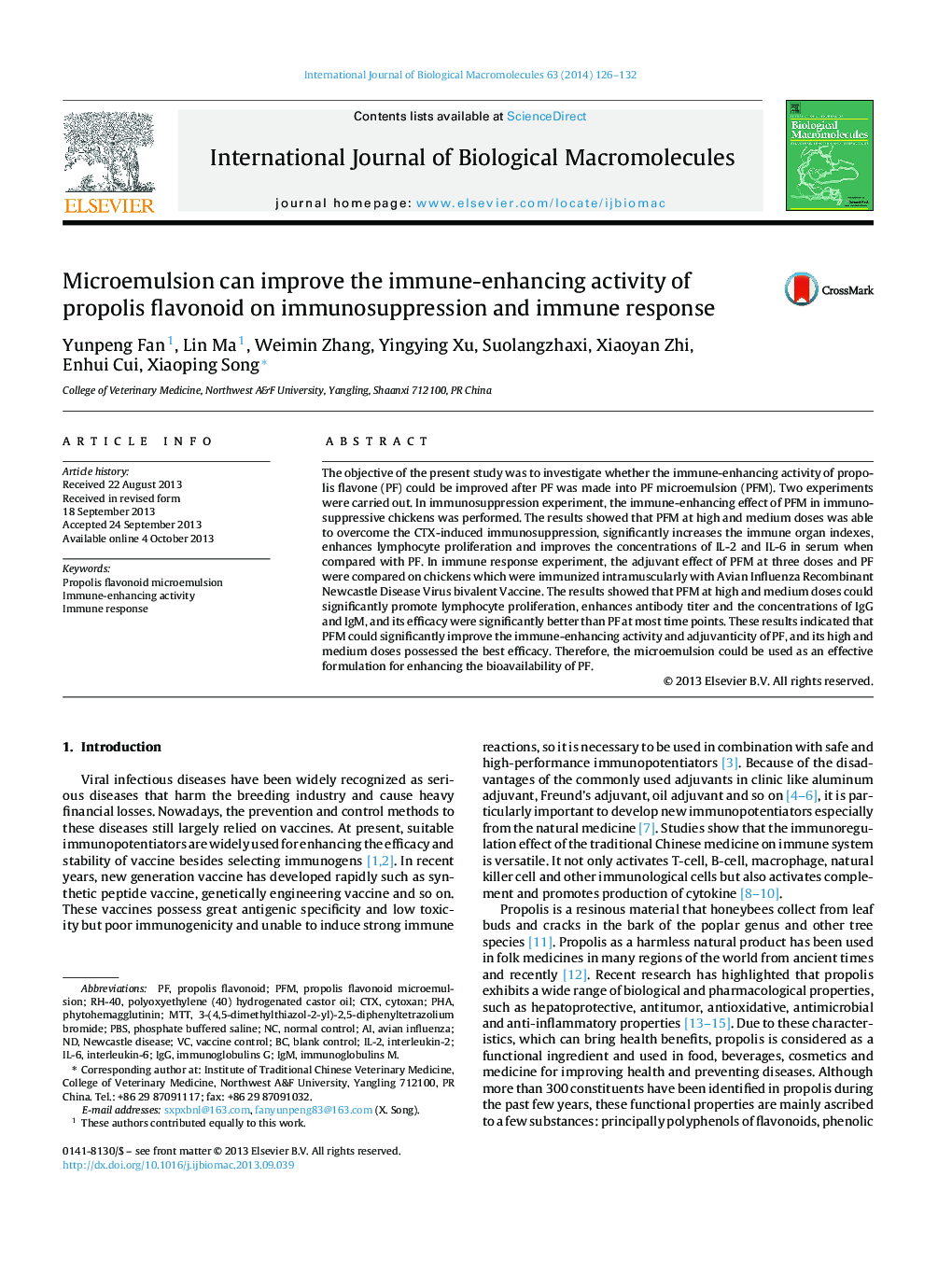| Article ID | Journal | Published Year | Pages | File Type |
|---|---|---|---|---|
| 1986992 | International Journal of Biological Macromolecules | 2014 | 7 Pages |
The objective of the present study was to investigate whether the immune-enhancing activity of propolis flavone (PF) could be improved after PF was made into PF microemulsion (PFM). Two experiments were carried out. In immunosuppression experiment, the immune-enhancing effect of PFM in immunosuppressive chickens was performed. The results showed that PFM at high and medium doses was able to overcome the CTX-induced immunosuppression, significantly increases the immune organ indexes, enhances lymphocyte proliferation and improves the concentrations of IL-2 and IL-6 in serum when compared with PF. In immune response experiment, the adjuvant effect of PFM at three doses and PF were compared on chickens which were immunized intramuscularly with Avian Influenza Recombinant Newcastle Disease Virus bivalent Vaccine. The results showed that PFM at high and medium doses could significantly promote lymphocyte proliferation, enhances antibody titer and the concentrations of IgG and IgM, and its efficacy were significantly better than PF at most time points. These results indicated that PFM could significantly improve the immune-enhancing activity and adjuvanticity of PF, and its high and medium doses possessed the best efficacy. Therefore, the microemulsion could be used as an effective formulation for enhancing the bioavailability of PF.
